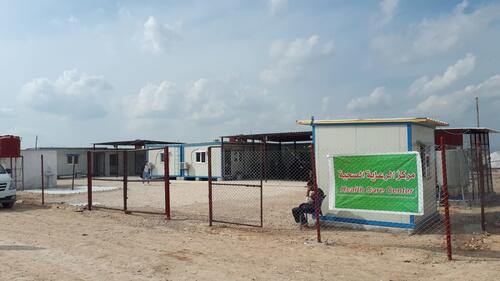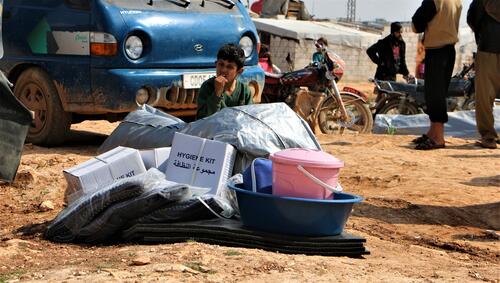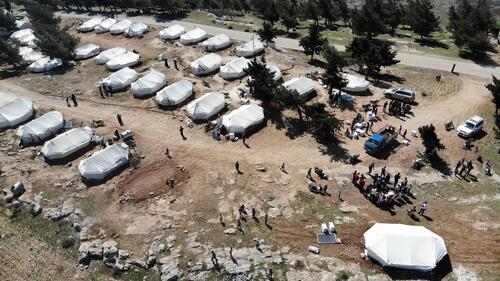Amsterdam - Médecins Sans Frontières (MSF) teams have treated four women with gunshot wounds, in Al-Hol camp, northeast Syria, during shooting that broke out. During the gunfire, MSF medical teams and patients were forced to take cover to avoid the bullets.
“Our teams were providing daily medical care to women in the camp, including in our clinic in the Annex, an isolated section of the camp that holds around 10,000 foreign peoplePeople held in the Annex don’t include anyone of Syrian or Iraqi nationality.,” said Robert Onus, MSF Emergency manager for Syria. “Our teams were providing care when protests from the women and children in the Annex were met with force from the security authorities that control the camp.”
According to the camp authorities, the camp now houses some 68,000 people contained inside by local security forces. Ninety-four per cent of them are women and children, who have mostly been displaced from Islamic State group’s last stronghold in Deir ez-Zor governorate.
“All of our teams are safe and continue to provide medical care in the main phases of the camp,” Onus added. “However, the current insecurity in the camp has forced MSF teams to temporarily reduce our medical activities and the insecurity limits the ability of humanitarian organisations to deliver much-needed assistance to very vulnerable people.”
Our doctors should not be treating women for gunshot wounds in a closed, camp setting; if we find ourselves in such a situation, something has gone terribly wrong.Robert Onus, MSF Emergency manager for Syria
“We are extremely worried about the wellbeing of the people held in the camp,”said Onus. “Our doctors should not be treating women for gunshot wounds in a closed, camp setting; if we find ourselves in such a situation, something has gone terribly wrong.”
MSF teams continue to monitor the situation and are prepared to provide medical care to people as needed.
“Given the dreadful living conditions in Al-Hol, and other camps in northeast Syria, along with the serious limitations on the provision of humanitarian assistance in the Annex, protests are to be expected,” said Onus.
MSF calls upon the international community to take up its responsibility to mount a collective response to resolve this crisis in line with international legal norms, including international humanitarian and human rights law.
Moreover, we call upon the camp management and security authorities to ensure the safety and security of the entire camp population. The management of protests or unrest should be done with restraint and in consideration of the vulnerability of the women and children who comprise 94 per cent of the camp’s population.
MSF launched a response in Al-Hol camp in January 2019, initially supporting the provision of emergency medical care in the reception area for new arrivals and donating essential relief items.
Based on people’s needs, MSF quickly expanded this support to include providing emergency triage in the reception area and constructing water and sanitation facilities. In February, MSF opened a comprehensive primary health facility with round-the-clock emergency care.





